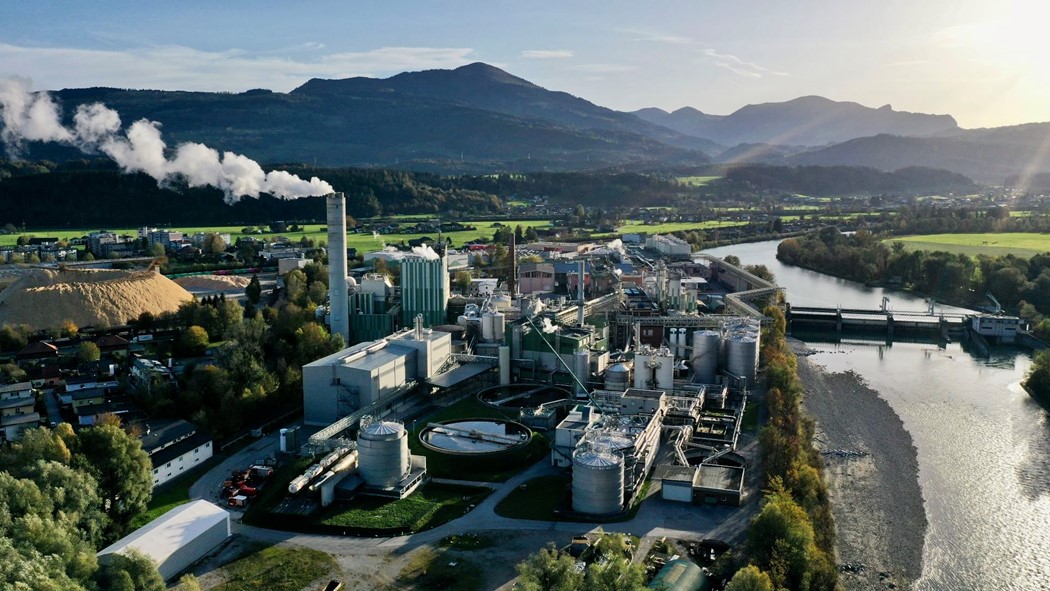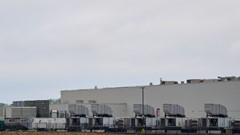Towerbrook Seeks Buyers for €500 Million Alpine Bio-Refinery
May 12, 2025 by Bloomberg(Bloomberg) -- Towerbrook Capital Partners, a New York-based private equity group with $19 billion in assets, is courting potential bidders for a bio-refinery in the Austrian Alps with the promise of a novel climate technology.
European industrialists and Middle Eastern sovereign wealth funds are among the potential bidders for Austrocel Hallein GmbH, Towerbrook senior advisory board member Patrick Verschelde said in an interview at the refinery, which converts waste-wood into specialty chemicals for use in agriculture, health care, manufacturing and transport.
The business could secure €500 million ($569 million) in a sale, per Bloomberg calculations based on figures provided by the company.
Austrocel, located 300 kilometers (186 miles) west of Vienna, recently began industrial production of a new agricultural biogel — a gravel-like product that helps farmers weather drought by slowly releasing moisture in fields. The organic polymer, which has been approved by European regulators, is already in use in vineyards, nurseries and greenhouses across Austria, Germany, Italy and Spain. It reduces irrigation requirements by more than 20% and boosts yields by a fifth, according to data the company said was independently audited.
“There’s been such a big buzz around the biogel that we’re being called by potential investors,” said Verschelde. “I’m not calling them, they’re calling us.”
With European Commission scientists warning this week that climate change-induced drought is looming larger over Europe and the world, farmers are looking for new ways to maintain crop yields while using less water.
The dark, gritty granules produced by Austrocel are distinct from synthetic alternatives, which need to be phased out by 2028 under EU environmental rules. Unlike synthetic variants, the biogels don’t contain micro-plastics and break down into hummus, enriching the soil with sequestered carbon dioxide.
Austrocel’s biogel was originally developed at Vienna’s BOKU University. The first batches to reach the market were made by Agrobiogel GmbH, a company co-founded by one of the product’s inventors and Austrocel’s former head of research and development. The two companies now work together, with Agrobiogel managing intellectual property and marketing, and Austrocel focused on the industrial process needed to manufacture in large volumes.
“Scaling was the puzzle,” said Agrobiogel co-CEO Tobias Keplinger, who received seed capital from Austrian, German and Swiss venture funds.
“It doesn’t help when you just have the best scientists but lack the engineering,” he said. “It’s only together that we could scale.”
Austrocel is now preparing for a potential surge in demand. The company’s bio-refinery, surrounded by spruce forests that have been supplying Austria’s lumber industry for centuries, is increasing biogel production five-fold to 1,000 tons this year. Output could quickly rise to 10,000 tons if needed, Austrocel Chief Executive Officer Wolfram Kalt said in an interview.
Since Towerbrook bought the business in 2017, Austrocel has also become the world’s largest producer of wood-based bioethanol. It now oversees a closely guarded process that yields 30 million liters of the liquid fuel every year — the equivalent of more than 1% of Austria’s annual consumption.
These initiatives helped revenue grow to €180 million last year — a 15% year-over-year gain. The business, which Towerbrook acquired in 2017, could be valued at about €500 million in a sale, based on last year’s approximately €54 million in earnings before interest, taxes, depreciation, and amortization. Shares of publicly traded peers including Stora Enso and Svenska Cullulosa trade at more than 10 times Ebidta, according to data compiled by Bloomberg.
Towerbrook took over Austrocel with the goal of reinventing the industry. That entails capturing “the full value of wood to the last fiber,” said Verschelde, the private equity advisor. For most of the last century, wood mills extracted cellulose fibers while discarding the leftover sugars and lignins that remained in the pulp. Only recently have scientists and engineers come up with new ways to use what’s left.
“We’re solving for the under-utilization of traditional industry,” Kalt said. “We’re showing industry can be green and profitable.”
©2025 Bloomberg L.P.
By


















